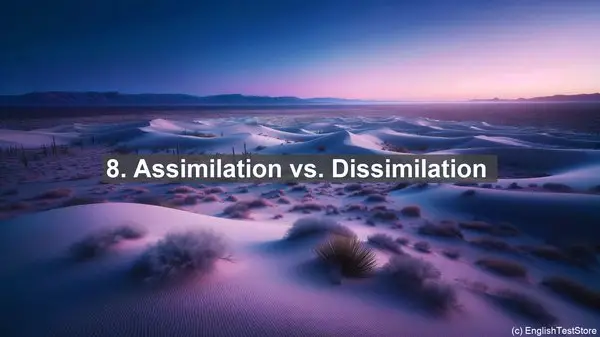Introduction to Phonetics and Phonology
Before diving into the confusing words, let’s briefly understand what phonetics and phonology are. Phonetics deals with the physical sounds of human speech, while phonology focuses on the way these sounds function in a particular language.
1. Phoneme vs. Allophone
Phoneme and allophone are fundamental terms in phonetics. A phoneme is the smallest unit of sound that can change the meaning of a word, while an allophone is a variant pronunciation of a phoneme that doesn’t alter the word’s meaning.
2. Vowel vs. Consonant
Vowels and consonants are the two main categories of sounds in language. Vowels are produced with an open vocal tract, while consonants involve some degree of constriction.
3. Articulation vs. Acoustics
Articulation refers to the physical production of speech sounds, while acoustics deals with the properties of sound waves produced during speech.
4. Syllable vs. Phoneme
A syllable is a unit of speech that consists of a vowel or a vowel-like sound, while a phoneme is a distinct sound in a language. Syllables can have multiple phonemes.
5. Stress vs. Intonation
Stress refers to the emphasis placed on a particular syllable in a word, while intonation is the rise and fall of pitch in speech, conveying meaning beyond individual words.

6. Minimal Pair vs. Minimal Set
In phonology, a minimal pair is a pair of words that differ in only one sound, such as ‘cat’ and ‘bat.’ A minimal set, on the other hand, involves multiple words that differ in a single sound.

7. Onset vs. Coda
In a syllable, the onset is the initial consonant or consonant cluster, while the coda is the final consonant or consonant cluster.
8. Assimilation vs. Dissimilation
Assimilation is the process in which a sound becomes similar to a neighboring sound, while dissimilation is the opposite, where sounds become less similar to each other.
9. Phonetics vs. Phonology
Phonetics is concerned with the physical properties of speech sounds, while phonology focuses on the abstract, mental representations of these sounds in a language.
10. Morpheme vs. Phoneme
A morpheme is the smallest meaningful unit in a language, while a phoneme is a distinct sound. Morphemes can consist of one or more phonemes.
